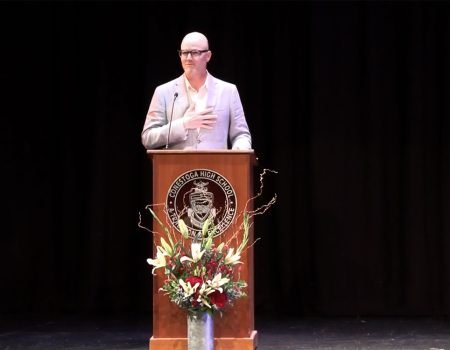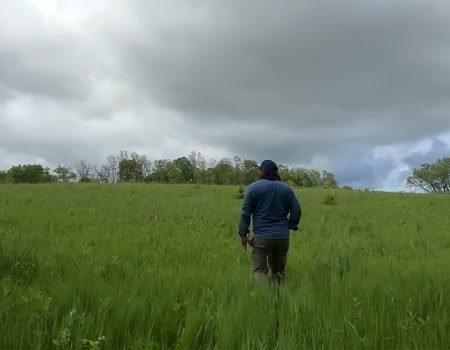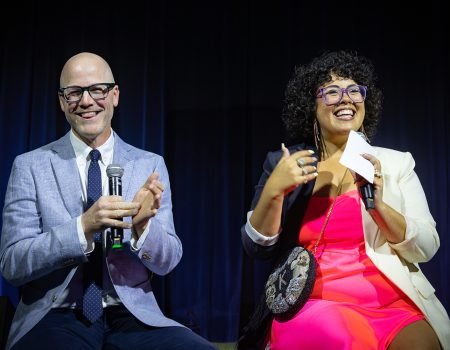That Winter’s Planets
<i>Ed Note: What follows is a short story I wrote for Tobias Wolff’s creative writing workshop my senior year at Syracuse University that is based on my memories of growing up near Chicago, IL.</i>
That Winter’s Planets
I bought a mobile of the planets on a field trip to the planetarium that winter. I had sat in the domed theater transfixed by the stars tracking slowly across the ceiling. The darkness around me was so complete, that those distant points of light, twinkling artifically, seemed so real.
The seasons moved in minutes as the narrator, his voice deep and firm, spoke to the wonders of the heavens. The constellations, the Zodiac, the cyclical movement and great order of all that distant fire was explained.
I was struck by the movement of the stars, and the sound of his voice, so deep and sure. It was comfortable. In the darkness of that planetarium, with only the light of the stars above, I was insulated from the cold Chicago winter outside.
Afterwards, my classmates and I wrestled over bins of trinkets: erasers, key chains, polished rocks. None of it interested me. I bought a poster of the Earth, a Great Blue Marble floating in the total blackness of space. But it wasn’t enough. It was too small. I ran back into the gift shop and exchanged the poster for the mobile: all nine planets, each a small metallic sphere connected to its own wire orbit.
I don’t remember ever being warm that winter, though I was forbidden from going outside without layers and layers of sweaters, coats and scarves. Only my eyes were exposed. The walk home from P.S. 84 was miserable. We had lived just blocks from school prior to the divorce. My father still did. But our home was now a small, musty apartment on the other side of the El tracks. It rumbled past every fifteen minutes, shaking the windows and doors. Soon, we didn’t notice.
My brother and I had moved there with my mother. There were no loyalty issues in the decision to live with her, it was simple logic. On television, children of divorced parents always lived with their mother. And so did we.
I was a ratty old apartment, reeking of urine and dust. The carpet was a faded gold, frayed at the edges. Our only furniture was the kitchen table, three chairs. On top of a rickety end table was a 13 inch black and white K-Mart television attached to our prized Atari 2600. We had one cartridge, Combat, that came with the system. My brother Chris and I sat in the darkness, shooting at each other in tanks, fighter jets and bi-planes. We turned down the volume to silence the steady drone of the engines, and the constant gun fire.
Siitting in my bedroom that afternoon, I tried to untangle the orbits of those nine planets. Each one was twisted into and around the next, a jumbled mess of wire. I was frustrated at not being able to seperate them. My brother insisted that he solve the equasion. My mother entered the room and said, tired and sad, “Time to go to Dr. Joyce.”
I was frightened, even then. I kicked and screamed, my face red and streaked from crying. But it was non-negotiable. Tears frozen to my cheeks, I walked down the street to meet with Dr. Austin Joyce, Psychologist, clutching the tangled mobile with my tiny gloved hands.
Dr. Joyce had brown hair and a thick mustache. We would pitch pennies during our sessions, kneeling on the floor and tossing the coins to see who could get closest to the wall. The winner won the pennies. I used Canadian pennies my father had brought me from his business trips. Over time, I stopped crying before our meetings.
I was alter boy then. Every Sunday, my brother and I would pull the wheat-colored robes over our heads, tie the sash, and follow the preist into Mass. We caried candles, the Bible, incense. We loved the incense, the fire and the smell. Chris used always used twice as much as necessary. The smoke was thick enough to set the parishoners caughing. Until then, I’d never seen a priest angry. I didn’t think they were allowed.
Afterwards, Chris and I would clean the rectory. With the priest out front shaking hands with a broad smile, we would sneak into the consecration vault to pilfer the Host and sip the wine. We ran home thrugh the snow with dozens of the flat wafers stuffed into our pockets, shoving handfulls into our mouths and tossing them — the Body of Christ himself — like frisbees through the cold winter air.
I spent afternoons at the YMCA. Walking there one frigid afternoon — the wind chill sixty, seventy, eighty below zero — I found a pigeon frozen mid-flight. I paused there on the gray sidewalk and waited for a sign of life. He stared at the sky, unmoving.
Walking home, I passed a novelty shop, its cards and gifts inside bathed in warm yellow light. A baseball cap with silver wings was displayed in the window. I stood a while, gazing at the shiny silver wings stitched into the deep blue cap, until the cold was too much.
I schemed for weeks to buy the $14.99 cap. I stole from the mug of laundry quarters on the window sill. I borrowed from my brother, my mother. IOUs hung like ornaments from the refrigerator. I skipped school lunches.
I bought the winged cap in March, just as spring broke, carefully counting the $14.99 in quarters, pennies, and crumpled dollar bills on the glass counter top. I pulled it on my head, smiling, and burst out of the shop. I ran through the streets as quickly as I could, across sidewalks and curbs, as if I might takeoff into the warm air. I was lighter, faster, speeding away from it all.
At home that night, I lay still in my bed listening to my brother’s breath. the El thundered past, sparks from its wheels flashing blue against the wall. The mobile shone above me in the flickering light. The planets rotated slowly around the sun in the center, circling each other patiently, autonomously, but inextricably tied. I drifted off towards a sound sleep beneath the starless Chicago night.



